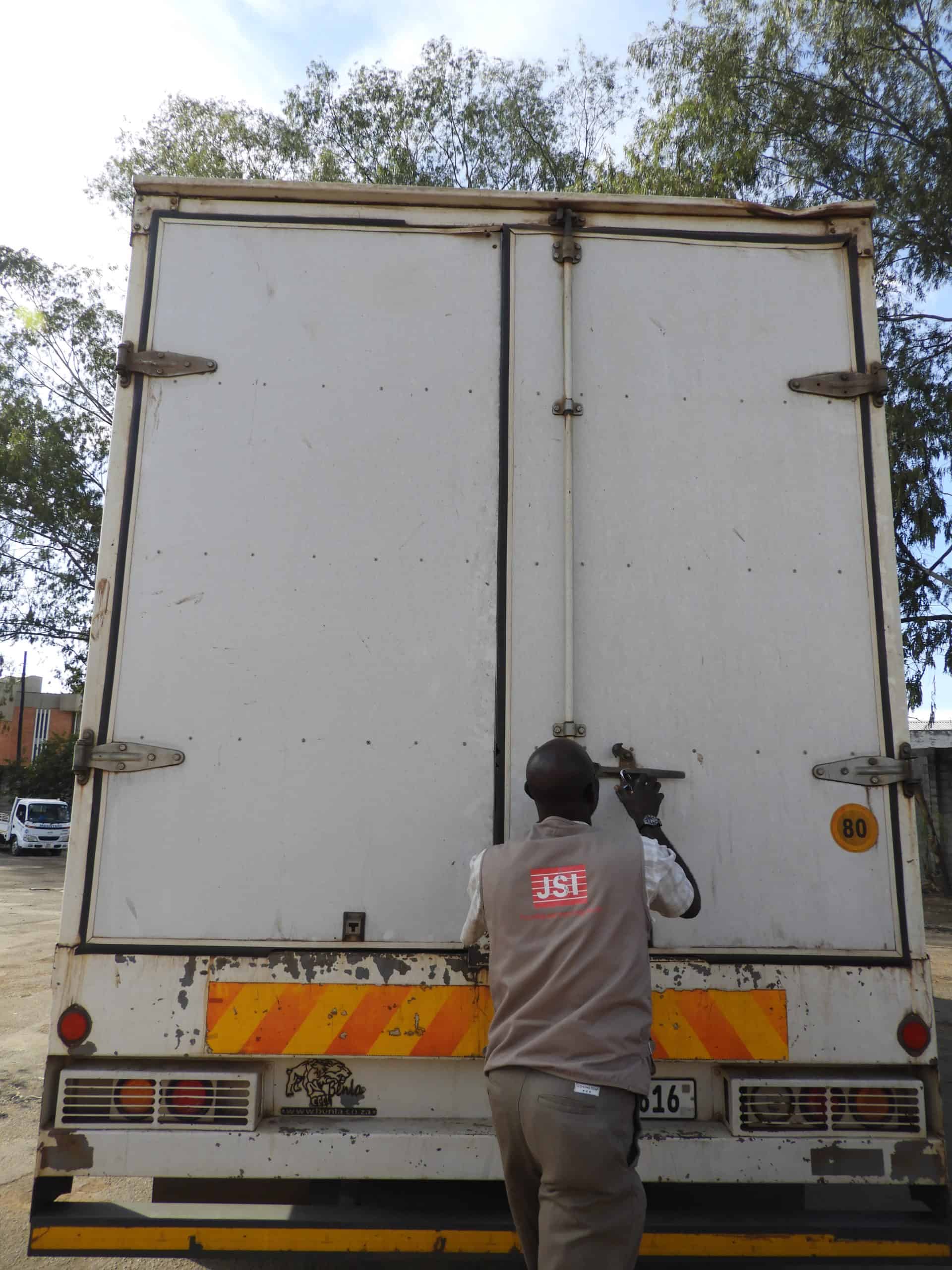USAID DISCOVER-Health Procures Essential Items for Zambia’s COVID-19 Response, Part 1 of 3
May 26th, 2020 | viewpoint
While countries around the world scrambled to obtain the commodities to respond to the COVID-19 pandemic, Zambia’s limited supplies significantly threatened not only public health and safety, but also the health gains the country had worked so hard to achieve over decades.
On April 3, 2020, USAID allocated funding to its DISCOVER-Health Project in Zambia to procure essential items for the country’s emergency COVID-19 response.
Faced with this mammoth task, the USAID DISCOVER-Health project quickly shifted priorities to ensure the country, home to 17 million people, was prepared to control the pandemic. As of May 26, 2020, Zambia had 920 confirmed cases of COVID-19 and seven deaths, according to the Ministry of Health.
In the first of this 3-part series, we asked the USAID DISCOVER-Health procurement team about the many challenges it faced in procuring emergency supplies.
The first challenge was the lack of available items in-country due to the surge in demand and stockouts. Zambia is a small market and almost all commodities are imported. Local vendors had extremely limited stocks. We had numerous instances where the available stock levels would change as we were signing the purchase order, which resulted in cancellations of orders and our need to develop plans B, C, D, and E.

Another challenge is that the COVID-19 pandemic is truly global so countries around the world are competing for the same limited commodities and equipment.
What helped us is that we were among the early buyers on the global market. Therefore, often the most difficult process wasn’t sourcing the goods, but getting them through customs and arranging cargo delivery to Lusaka. Every day brought a new regulation or lockdown in the countries we were sourcing from, resulting in delays and additional paperwork. Thankfully, we had engaged vendors who were able to manage the complexities, but it was extremely frustrating knowing that goods were ready and we couldn’t load them onto a plane because of a customs issue.
Another challenge was cost: prices for commodities and logistics services skyrocketed overnight. Several times we needed to source more vendors to obtain reasonable pricing.
Even today, prices continue to fluctuate and it can be difficult to get a quote for logistics services, let alone at a reasonable price.
Global supply chains were significantly backlogged shortly after the declaration of the pandemic. This placed tremendous pressure on the freight and logistics market. Airfreight markets are highly volatile due to high demand and limited-to-no availability of commercial flights on many routes. Other governments increasingly chartered flights, further diminishing the supply of flights for everyone else. Furthermore, air freight quotes from airlines come with a ridiculously short validity period, from a few hours to a maximum of a couple of days.
For example, at one point, Guangzhou, China (where we consolidated the first few consignments from vendors around China) was clogged due to huge demand as well as arrangements between China and many European countries. Chinese authorities and airlines refused to accept any cargo at Guangzhou airport until the end of April. We had no choice but to move several truckloads of essential supplies from Guangzhou to Beijing, a 3–4-day journey. Then, we airlifted the cargo from Beijing to ensure that goods arrived in Lusaka ASAP and prior to any further unexpected termination of cargo and other flights.
There are delays at every step. Airfreight is in disarray, limited cargo flights are canceled, airports are closed, countries are locked down, a backlog of commodities are stuck at hub airports, and more. It doesn’t help that Zambia is a landlocked country.
Furthermore, moratoriums were enacted in many countries, so by the time you were ready to sign a purchase order with the vendor, the country was no longer allowed to export COVID-19 supplies or equipment. Some countries’ export regulations have become much more stringent too, including China. For example, if one item in the consignment requires any additional documents, the customs authorities might withhold the entire shipment. To get around this, we split consignments to fewer items, and have been able to expedite shipments.
The situation often requires exploring all options, thinking on your feet, and making strategic decisions. One early Saturday morning, Dr. Chikuba-McLeod, our project director, called and asked if we could charter a cargo flight. We explored the option and although it was possible, we all agreed the cost was too high. We worked around it by splitting the consignments (with the help of our pre-qualified shipper) to find space on regular cargo freighters—at a fraction of the cost of chartering a cargo flight.
The MOH requested swabs and universal transport media (room-temperature stable transport platforms for the collection, transport, and maintenance of viruses) to scale-up COVID-19 testing efforts. These supplies allowed the MOH to continue to test and transport samples to the lab. The quality of supplies is key and can affect test results.
The estimated total weight of the commodities procured internationally and shipped to Lusaka is 185,000 lbs (83,914 kg). This includes 90,000 swabs and 6,296 lbs. (2,856 kg) worth of viral transport medium. This is in addition to the commodities procured locally.
Part 2 of this series recounts how the team quickly adapted its ways of working to support Zambia during the pandemic.
Part 3 of this series is about the impact of the pandemic on the public health supply chain and the team’s efforts on the country’s preparedness.
The USAID DISCOVER-Health procurement team:
Shahzad Akbar, Procurement Manager, Boston
Mika Bwembya, Public Health Supply Chain Director, Lusaka
Nylepitha Chirambo, Operations Director, Lusaka
Louise Henderson, Finance and Administration Director, Lusaka
Allison Molenda, Finance and Operations Manager, Boston
Manasseh Pasi, Procurement Manager, Lusaka
To learn more, watch a Facebook Live interview between USAID DISCOVER-Health’s Project Director Muka Chikuba and Chargé d’Affaires David Young of the U.S. Embassy in Zambia.
We strive to build lasting relationships to produce better health outcomes for all.